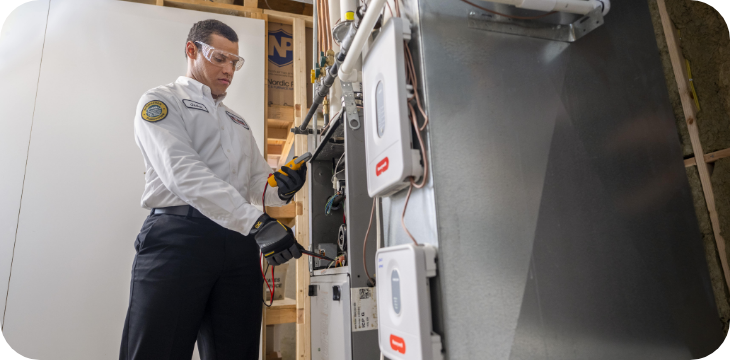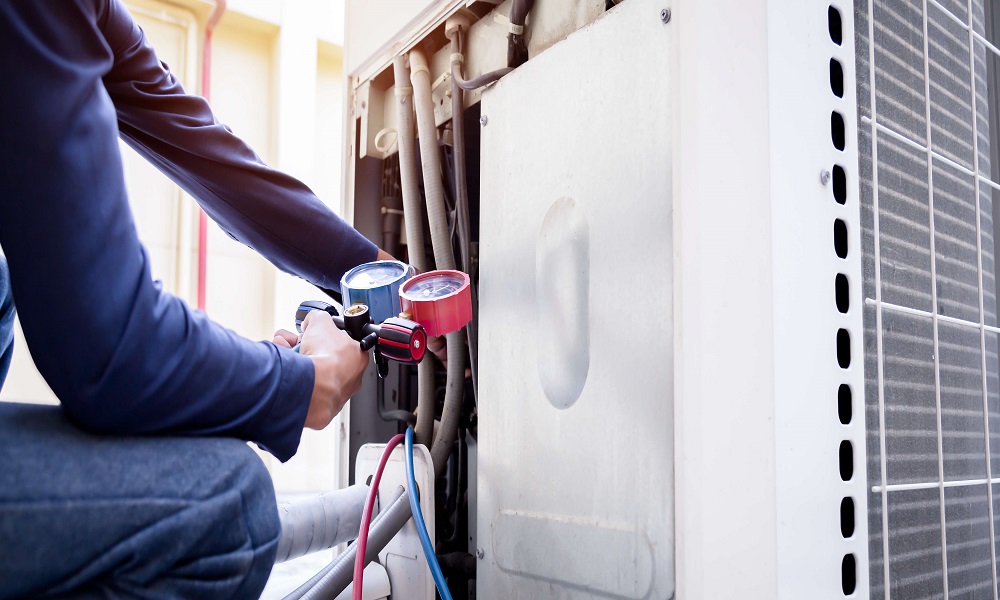How to Choose the Right HVAC System for Your Needs
Picking the suitable cooling and heating system is a vital decision that needs careful factor to consider of various elements. Begin by reviewing your home's dimension, layout, and distinct demands, as these aspects determine the essential capability and configuration of the system. In addition, establishing a budget plan that incorporates installment and long-term functional costs is necessary. As you evaluate your choices, recognizing power performance rankings and the ramifications of your regional climate will certainly play a significant role in your choice. Nonetheless, the myriad of system types offered can complicate this procedure, leading one to question which path inevitably results in optimal comfort and performance.
Evaluate Your Home Size
Assessing your home dimension is a vital first action in choosing the suitable HVAC system. The size of your home directly affects the home heating and air conditioning capability required for effective climate control. A heating and cooling system that is also small will have a hard time to keep comfy temperatures, causing raised energy intake and endure the unit. On the other hand, an oversized system can result in brief biking, insufficient moisture control, and inefficient procedure.
To accurately examine your home dimension, measure the square video of each room, considering aspects such as ceiling elevation and the format. Furthermore, consider the insulation high quality and the number of windows, as these components affect thermal efficiency. Houses with open layout might require different system setups compared to those with many divided spaces.
Utilizing the Handbook J lots calculation technique can provide a more exact price quote of your cooling and heating requires. This method make up various variables, including neighborhood environment, solar gain, and occupancy patterns. By very carefully examining these aspects, you can guarantee that your chosen a/c system is appropriately sized, leading to boosted comfort, energy efficiency, and durability of the tools.
Determine Your Spending Plan
Determining your budget plan is a critical step in the cooling and heating system selection process, as it sets the criteria for your choices - DMAKS HVAC. A cooling and heating system is a considerable financial investment, and recognizing your monetary limits will certainly help narrow down selections that fit within your methods
Begin by analyzing not only the initial acquisition rate yet likewise installation expenses, which can vary significantly depending on the complexity of the project. Think about recurring expenditures such as upkeep, repairs, and energy usage. A system may show up affordable initially however can cause greater expenses with time if it is much less effective.
It is a good idea to allocate a backup fund for unanticipated costs that may occur during setup or preliminary system adjustments (DMAKS HVAC). Furthermore, check out financing alternatives or discounts that may be offered, as these can ease the problem of in advance costs
Inevitably, having a clear spending plan allows you to engage with cooling and heating experts extra successfully, ensuring you obtain tailored guidance that aligns with your monetary objectives and home demands. By being thorough regarding your budget plan, you can make educated decisions that boost comfort without jeopardizing monetary security.
Evaluate Power Effectiveness
Energy performance plays a vital function in the overall performance and cost-effectiveness of your cooling and heating system. When selecting a system, it is important to consider its power performance ratings, as these numbers straight influence your utility expenses and ecological footprint. Try to find systems with a high Seasonal Power Effectiveness Ratio (SEER) for cooling down and a high Yearly Fuel Usage Efficiency (AFUE) score for look at here now home heating. Higher ratings suggest greater performance, indicating more comfort for less power consumption.
Additionally, consider the Energy Star certification, which indicates that the system satisfies stringent performance guidelines established by the Epa. Buying an Energy Star-rated heating and cooling system can lead to considerable savings over time, particularly in locations with extreme temperature level fluctuations.
One more aspect to review is the system's size and ability. A large or undersized unit can cause inadequacy and increased power costs. DMAKS HVAC. Appropriate sizing, often determined through a Hands-on J tons computation, makes sure that the system operates at optimal effectiveness


Think About Climate and Atmosphere
When selecting a heating and cooling system, it is critical to take into consideration the regional environment and ecological problems, as these elements considerably influence the system's efficiency and performance. Various areas experience varying temperature level extremes, humidity levels, and seasonal modifications, all of which impact heating and cooling down demands.

Moreover, regional ecological elements, such as air quality and possible allergens, must inform your choice. Equipments outfitted with sophisticated filtration innovations can help mitigate toxins and provide cleaner air. Furthermore, take into consideration the power sources available in your location-- some cooling and heating systems are extra reliable when powered by all-natural gas or sustainable power sources.
Eventually, aligning your a/c system option with your regional environment and environmental considerations will certainly bring about improved convenience, enhanced effectiveness, and reduced power costs.
Explore System Kind and Functions
As house owners look for to maximize convenience and efficiency, exploring the numerous sorts of heating and cooling systems and their special functions becomes necessary. The try this main kinds of heating and cooling systems include central air conditioning, heatpump, ductless mini-split systems, and heaters. Each system provides distinct advantages customized to different requirements and preferences.
Air conditioning systems give consistent air conditioning throughout a home, making them excellent for bigger rooms. Heatpump work as both heating and cooling down remedies, utilizing electricity to transfer warm, which can cause lower power expenses. Ductless mini-split systems are becoming significantly preferred because of their adaptability and simplicity of setup, allowing homeowners to manage the temperature level in private rooms without substantial ductwork.

Conclusion
Finally, choosing the ideal heating and cooling system necessitates mindful factor to consider of various elements, including home dimension, budget restraints, energy effectiveness, neighborhood climate, and available system kinds. A comprehensive assessment of these aspects guarantees ideal convenience and cost-effectiveness. By complying with a structured Check Out Your URL approach, property owners can make educated choices that align with their details requirements and choices, ultimately resulting in improved indoor air quality and energy financial savings.